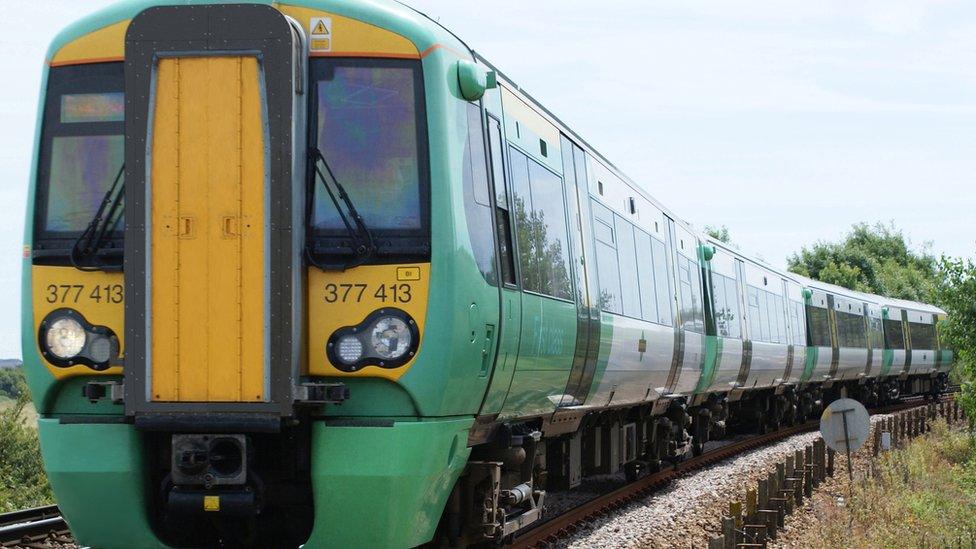Southern rail conductors plan further strike action
- Published
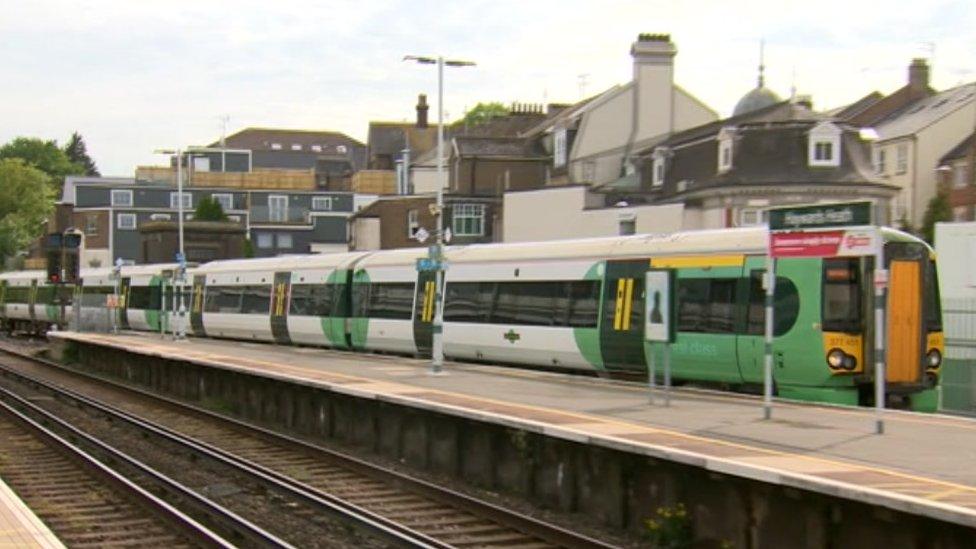
Data released by Southern owner GTR showed only 13.6% of mainline trains were on time on Monday
A union has called for another 24-hour strike by conductors on Southern rail trains in an ongoing dispute about the introduction of driver-only trains.
Southern operator Govia Thameslink (GTR) said it would implement a new role for conductors from 21 August, with guards no longer opening and closing doors.
The RMT union has said their current role is vital for safety reasons.
Members will be asked to walk out on Tuesday 21 June.
The union's southeast organiser Paul Cox said: "It is not just about operating doors. Conductors will save lives in the event of emergency."
Southern said the proposed strike would have a significant effect on services, with no service on many routes and only a limited service on others.
It has repeated its call for the RMT to engage in talks.
Meanwhile, rail minister Claire Perry has said the recent high level of sickness absence by Southern conductors amounted to a "work to rule", which was "outrageous and unfair".
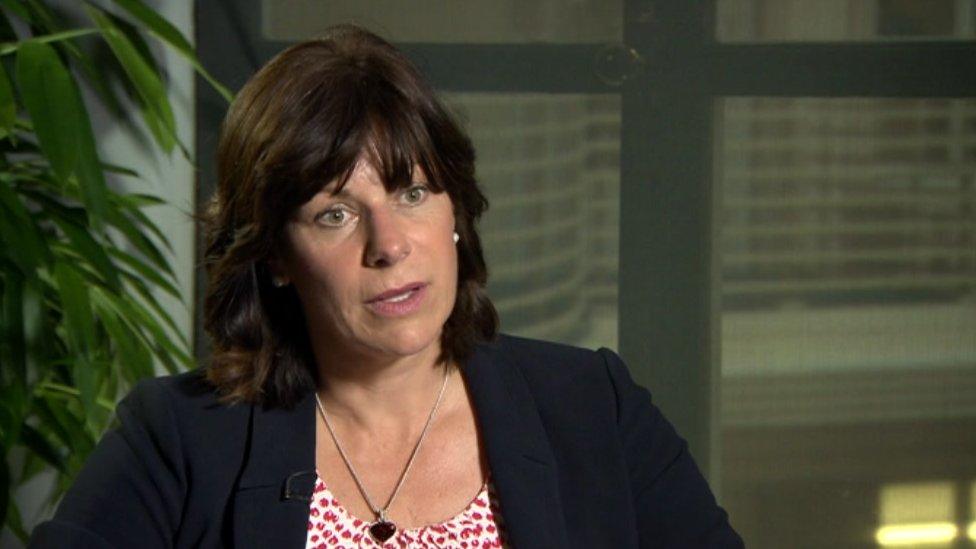
Rail minister Claire Perry described higher levels of staff sickness as "working to rule".
Last month GTR said illness rates had doubled since the first strike in April.
But the RMT insisted there was "no unofficial action" and blamed staff shortages on "gross mismanagement".
"Trying to lump the blame onto hard-working, frontline staff, who take the full force of passenger anger for cancellations and delays, is cowardly and despicable," it added.
Performance figures released, external by operator Govia Thameslink Railway (GTR) showed fewer than one in seven Southern mainline services arrived on time on Monday.
Shares in GTR's parent company Go-Ahead fell 12% on Tuesday after it issued a profit warning, citing "very challenging performance and industrial relations environments".
GTR is in dispute with the RMT and ASLEF unions on three issues: the role of guards, the introduction of longer driver-only trains and closure of some ticket offices.
The operator insisted there would be no job losses or pay cuts.
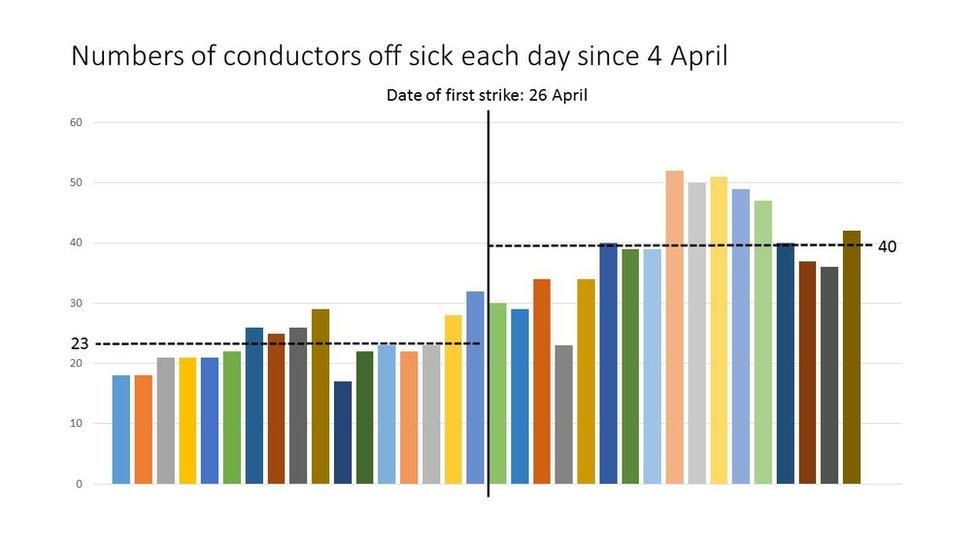
GTR said train conductors had called in sick more than 1,000 times in a month
- Published14 June 2016
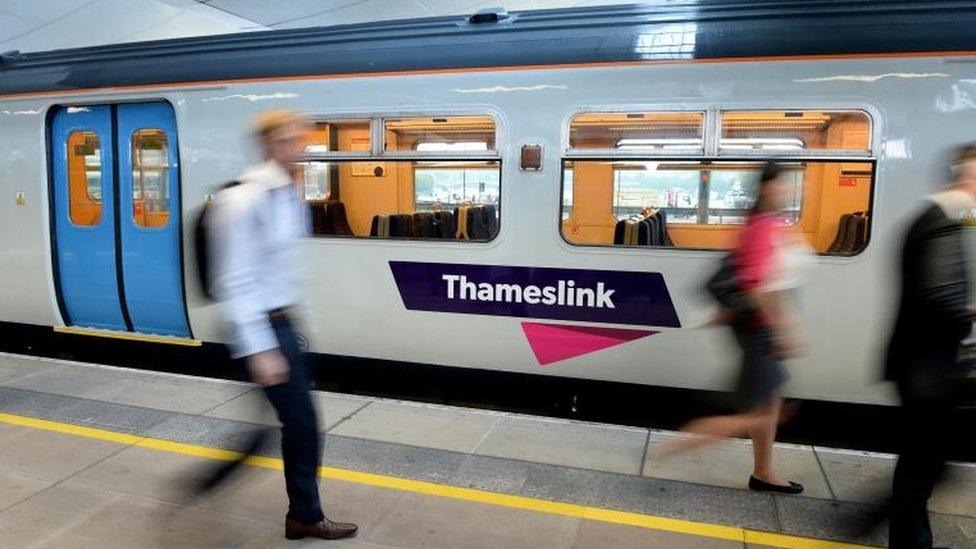
- Published6 June 2016
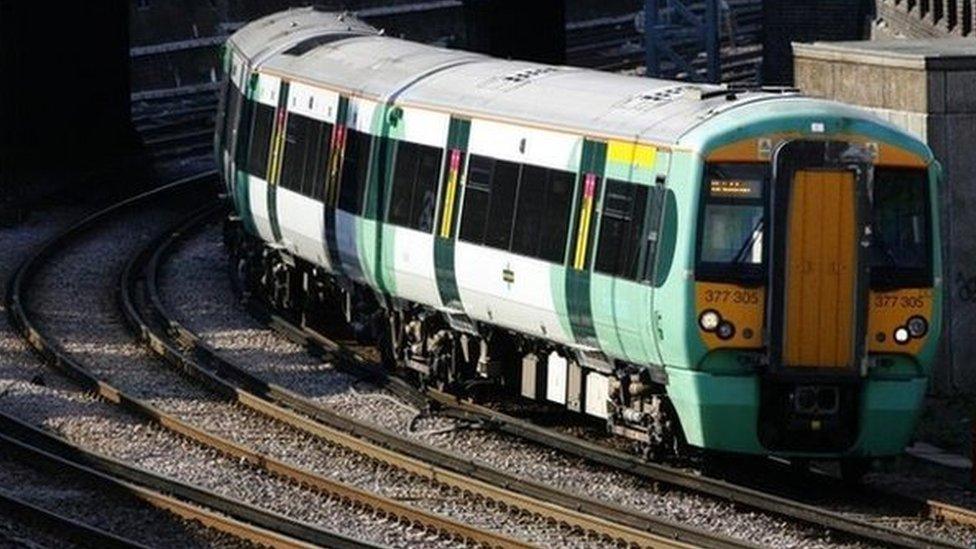
- Published31 May 2016

- Published25 May 2016
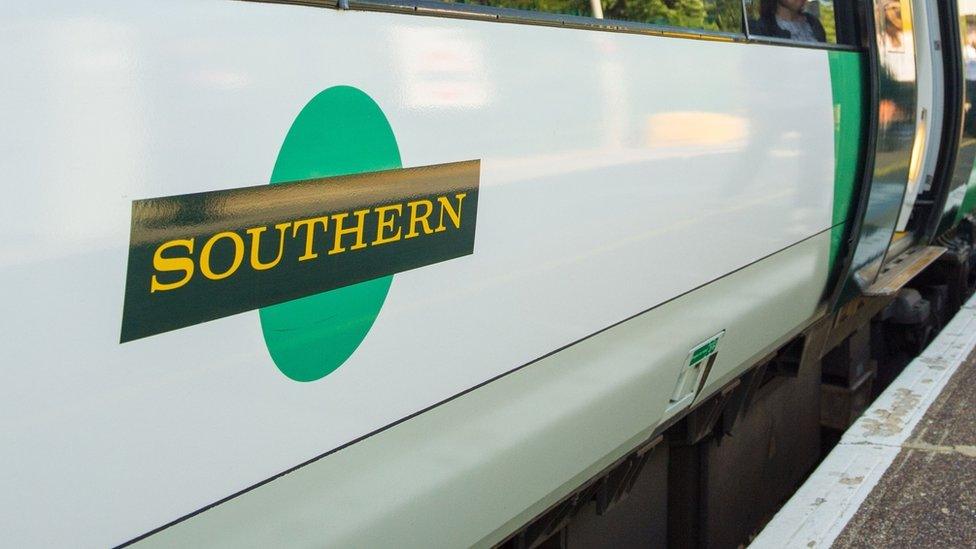
- Published24 May 2016
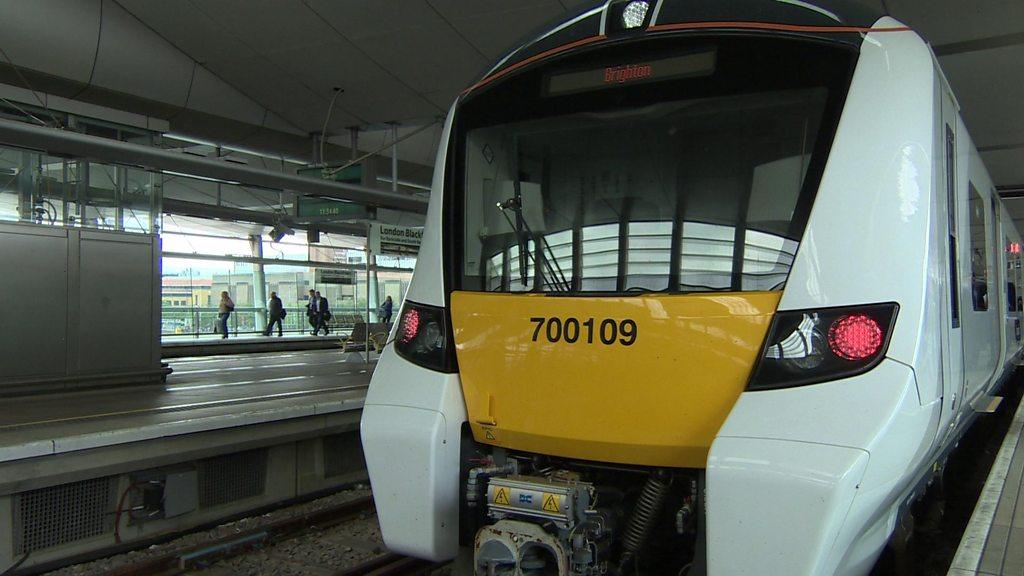
- Published18 May 2016
